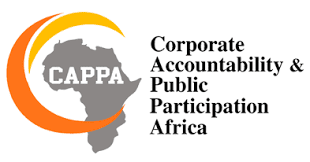


CAPPA tasks FG, stakeholders on proactive steps to avert slump attack crisis
Matthew Denis
Attention of the federal government and policy makers, industries and the public have been drawn to the rising burden of non communicable diseases and the rising slump attack in the country which could be linked to poor cardiovascular health resulting from loopholes in the existing food safety policies and regulatory mechanisms.
This lapses according to the Executive Director of Corporate Accountability and Public Participation Africa (CAPPA) have greatly impacted the quality of food produced, marketed and consumed by the populace, urging the implementation of effective countrywide salt/sodium reduction interventions to stem the ugly tide of the rising burden of slump attacks and hypertension in the country.
At a press briefing in Abuja for salt targets in Nigeria, Akinbode warns that the consideration of Bouillon cubes, popularly known as “maggi,” as a food vehicle to combat micro nutrients deficiency in Nigeria defies World Health Organization’s (WHO) criteria for food selection, which states that a suitable food vehicle must not pose a threat to public health.
” Nigeria presently records an average daily salt consumption reaching up to 10 grams per day, dangerously exceeding the WHO’s recommended limit of 2 grams of sodium per day or less than 5 grams of salt, which is equivalent to just one tea spoon of salt daily. Fortifying another high sodium food such as bouillon puts Nigeria at risk of a high sodium intake, ” he added.
Dr Jerome Mafeni, the Technical Advisor, Network for Health Equity and Development, while buttressing on the imminent danger stated that the need for immediate action to reduce sodium intake among Nigerians is clear, pointing to the alarming trend of using high sodium foods such as bouillon cubes as vehicle for fortification.
” While fortification aims to address micro nutrients deficiencies, the excessive sodium content in these products poses significant health risks
” The deceptive marketing practices that have misled Nigerians into believing that Monosodium Glutamate (MSG) is a healthier alternative to salt must stop. This information, often propagated by influencers and advertising campaigns lacking scientific backing, has contributed to the rising incidence of hypertension and cardiovascular diseases in our country. It is time to enlighten the public about the true health implications of considering these high sodium products,” Mafeni stated.
Stakeholders at the briefing were unanimous in urging the Federal Ministry of Health and Social Welfare, the National Agency for Food and Drugs Administration Control, NAFDAC and other relevant agencies to accelerate preliminary activities for salt and sodium regulation in Nigeria.



